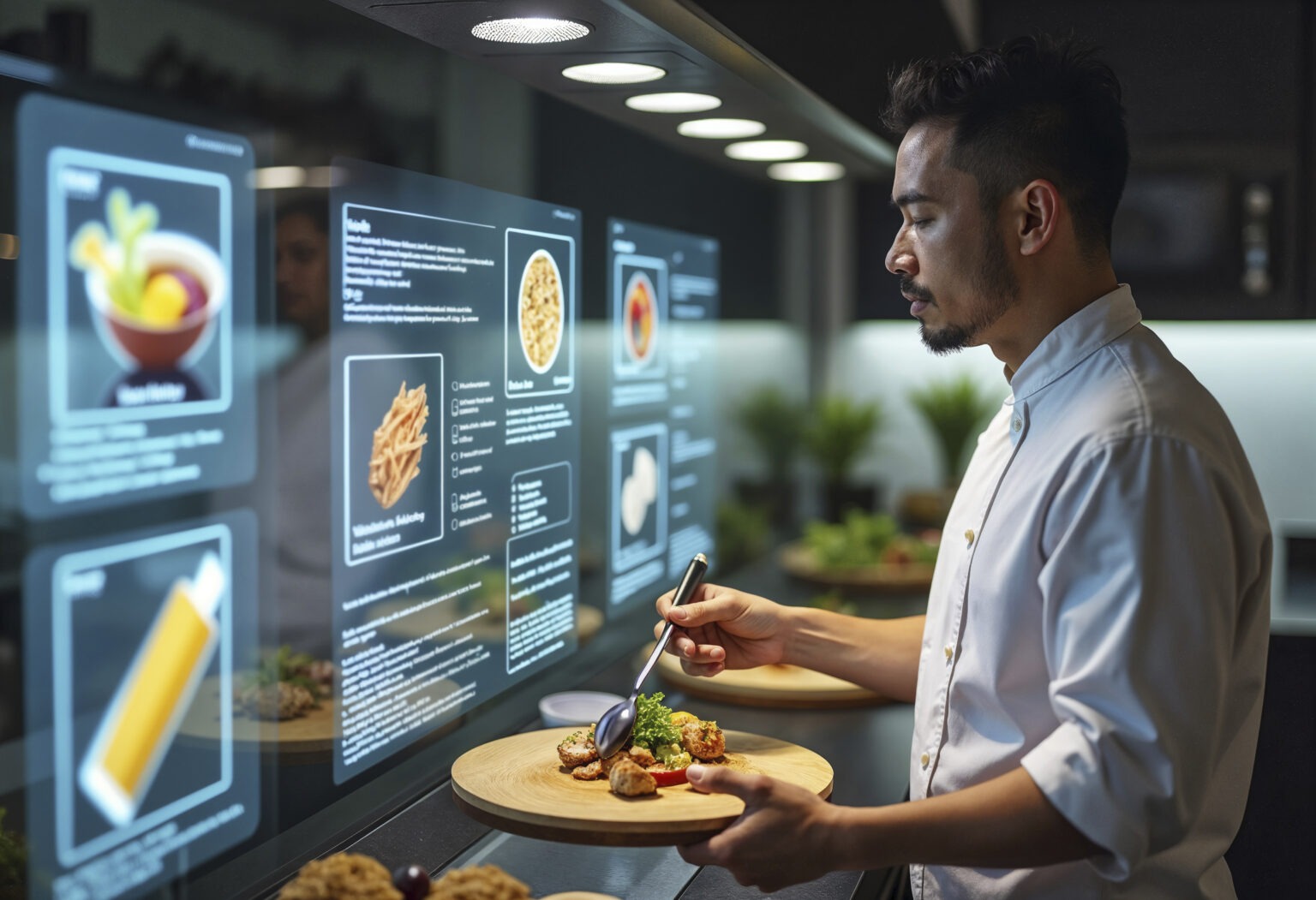Last Updated: February 2026
Originally Published: September 2023
Author: Alston Hanley
IT operations professional with over 15 years of experience and a lifelong tech enthusiast. Based in the Caribbean, the Founder of MyCaribbTech.com, CaribbTech Dynamics Online (CTDO), writes about AI, Technology, Business, Outdoor gear, and Fitness lifestyle tools, sharing practical, real-world insights through his blog launched in 2023.
Key Takeaways
- AI for Restaurants in 2026 focuses on automation, personalization, and predictive analytics.
- Key applications include demand forecasting, chatbots, robotics, and business intelligence tools.
- Restaurants using AI can reduce waste, increase revenue, and improve service quality.
- Successful adoption requires phased implementation and continuous performance tracking.
Introduction: Why AI for Restaurants in 2026 Matters
AI for Restaurants in 2026 is no longer a future concept—it is a practical business necessity. Artificial intelligence is transforming how restaurants manage customers, kitchens, supply chains, and finances. Industry forecasts indicate that AI systems now support a significant portion of hospitality service and sales operations.
By integrating data-driven tools, restaurants can improve efficiency, personalize customer experiences, and increase long-term profitability. This guide presents nine proven applications of AI that help restaurant owners modernize operations and remain competitive in a rapidly evolving market.
1. AI for Restaurants in 2026: Predicting Customer Demand
What Demand Forecasting Means
AI-powered demand forecasting uses machine learning models to predict customer traffic and menu demand based on historical sales, weather patterns, local events, and seasonal trends.
Business Impact
These systems optimize staffing schedules, food preparation, and inventory levels. According to industry case studies, professional food service firms have reduced waste by over 30% after adopting predictive demand tools.
Implementation Tip
Start by connecting your point-of-sale (POS) system to a cloud-based forecasting platform and monitor weekly accuracy reports.
2. Personalized Menu Recommendations
Definition
Recommendation engines analyze customer order history, dietary preferences, and purchase behavior to generate personalized menu suggestions.
Performance Evidence
Starbucks reported a 2.5% sales increase after deploying AI-powered recommendations within its mobile ordering platform.
Strategic Value
Personalization increases average order value by promoting complementary items and targeted promotions.
3. Automated Inventory and Supply Chains
Core Function
AI inventory platforms continuously monitor consumption rates, supplier lead times, and expiration cycles.
Benefits
- Automatic reordering
- Reduced stockouts
- Lower storage costs
UK-based meal providers have reported inventory reductions exceeding 70% after implementing AI tracking systems.
Best Practice
Integrate inventory software with suppliers to enable real-time restocking.
4. Customer Support Chatbots
What Are AI Chatbots?
AI chatbots are automated conversational systems that manage reservations, FAQs, and service requests using natural language processing.
Industry Data
A 2023 hospitality study by Juniper Research estimated that over 75% of customer service interactions now involve AI chatbots.
Operational Advantage
Chatbots reduce call volume and improve response time while operating 24/7.
5. Intelligent Cooking Systems
Definition
Intelligent cooking systems use sensors and AI controls to regulate temperature, timing, and portioning during food preparation.
Performance Impact
By standardizing cooking parameters, these systems reduce human error and ensure consistent food quality.
Example Applications
- AI-controlled sous vide machines
- Smart food processors
- Automated portioning devices
6. AI for Restaurants in 2026: Predictive Equipment Maintenance
How It Works
Predictive maintenance platforms analyze equipment sensor data to detect early signs of malfunction.
Industry Research
A 2022 operational analysis by McKinsey found that predictive maintenance systems can reduce equipment downtime by up to 70%.
Business Outcome
Improved uptime minimizes service disruptions and protects customer satisfaction.
7. Automated Inventory Counting
System Overview
Computer vision systems scan barcodes and shelf images to monitor stock levels in real time.
Financial Impact
AI-powered inventory automation can reduce operational costs by 10–25% by preventing overstocking and spoilage.
Integration Strategy
Connect vision systems directly to your POS and accounting software for seamless reporting.
8. Robotic Kitchen Assistants
Definition
Robotic chefs perform repetitive and hazardous kitchen tasks such as frying, grilling, and ingredient preparation.
Industry Example
Companies such as Miso Robotics have developed robotic systems capable of replacing multiple manual positions in high-volume kitchens.
Operational Value
Robotic assistants improve productivity, enhance food safety, and reduce labor dependency.
9. Business Analytics and Financial Insights
Core Capabilities
AI analytics platforms use predictive modeling and data mining to analyze:
- Sales performance
- Supplier transactions
- Marketing ROI
- Labor costs
Research Insight
A 2024 business intelligence review published by Forbes reported that AI-powered analytics tools improve managerial decision accuracy by up to 50%.
Management Advantage
Real-time dashboards support informed operational and strategic decisions.
Implementation Roadmap: How to Adopt AI Successfully
Phase 1: Foundation (0–3 Months)
- Integrate POS and inventory systems
- Deploy chatbots
- Enable basic reporting
Phase 2: Optimization (3–9 Months)
- Implement demand forecasting
- Activate recommendation engines
- Introduce automated counting
Phase 3: Scaling (9–18 Months)
- Add robotics
- Expand predictive maintenance
- Deploy advanced analytics
Best Practices for AI for Restaurants in 2026
- Start with high-impact use cases.
- Ensure data accuracy before automation.
- Train staff on AI-assisted workflows.
- Monitor KPIs monthly.
- Maintain cybersecurity standards.
Frequently Asked Questions
Is AI for Restaurants in 2026 affordable for small businesses?
Yes. Many cloud-based AI platforms offer subscription pricing suitable for small and medium-sized restaurants.
How long does AI implementation take?
Basic systems can be deployed in weeks, while full optimization may require 6–12 months.
Does AI replace human staff?
AI supports employees by automating repetitive tasks, allowing staff to focus on customer service and quality control.
Conclusion: The Future of AI for Restaurants in 2026
AI for Restaurants in 2026 represents a strategic shift toward intelligent, data-driven hospitality management. By adopting predictive analytics, automation, and personalization tools, restaurant owners can reduce costs, enhance customer experiences, and strengthen long-term competitiveness.
Successful implementation requires structured planning, continuous measurement, and gradual scaling. Restaurants that invest in AI today position themselves to lead tomorrow’s dining economy.


